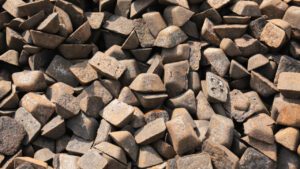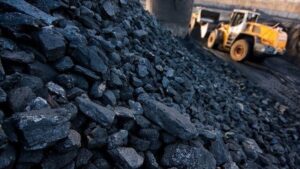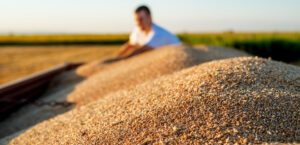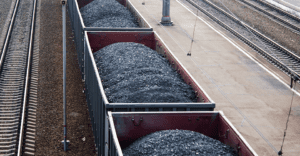
In January-August of this year, Ukraine reduced the export of marginal iron in physical terms by 59.6% compared to the same period last year – to 877,631 thousand tons.
According to statistics published by the State Customs Service (SSC), during the specified period, the export of pig iron in money decreased by 57.8% – to $475,533 million.
At the same time, exports were made mainly to the USA (40.42% of deliveries in monetary terms), Poland (33.23%) and Turkey (9.3%).
In January-August 2022, Ukraine imported 15 tons of pig iron from Germany for $25 thousand, while in 8 months of 2021 it imported 149 tons of pig iron for $163 thousand from Germany (64.42%), the Russian Federation (28.22%) and Slovakia (7.36%).
As reported, in 2021, Ukraine increased the export of pig iron in physical terms by 4.2% compared to 2020 – to 3 million 235,772 thousand tons, the export of pig iron in monetary terms increased by 78.1% – to $1 billion 642,596 million At the same time exports were made mainly to the USA (53.61% of deliveries in monetary terms), Italy (22.08%) and Turkey (9.74%).
In 2021, Ukraine imported 185 tons of pig iron worth $226,000 from Germany (74.34%), the Russian Federation (20.35%) and Slovakia (5.31%), while in 2020 it imported 593 tons worth $417,000.

Ukraine will consider the possibility of opening a quota for the export of 100,000 tons of coal to Poland in September, Prime Minister Denys Shmygal said.
“On behalf of the President of Ukraine, at the request of the Polish side, Ukraine is ready to consider the possibility of opening quotas for coal exports to Poland. We are talking about 100,000 tons in September, which are now critically needed by our Polish partners,” he wrote on his Telegram channel.
Shmyhal specified that coal reserves in the warehouses of Ukrainian power plants amount to almost 2 million tons, which is 2.5 times more than a year ago. “Therefore, we are ready to lend a shoulder of support to our Polish friends,” he stressed.
The Prime Minister of Ukraine added that during the visit of his Polish counterpart Mateusz Morawiecki to Kyiv, the parties also discussed the restoration and commissioning of the Khmelnytsky NPP-Rzeszow power line.
“We planned to finish before December 14, but thanks to the acceleration of work, we can complete a week earlier. This will allow us to export an additional 1,000 MW to Poland. For our part, we ask Poland to assist in expanding export quotas within the framework of ENTSO-E,” Shmyhal said.
According to him, Ukraine expects that by the end of 2022 the amount of available transmission capacity in the direction of Slovakia, Romania and Hungary will increase from 300 MW by another 200-300 MW, and in the direction of Poland – over 1000 MW.
As reported, since mid-June 2022, Ukraine has set zero quotas for the export of all types of coal, except for coking coal, and on September 7, it completely banned the export of Ukrainian coal.
According to the State Customs Service, Ukraine’s coal exports for seven months of 2022 amounted to 450.6 thousand tons for $145.917 million, incl. to Slovakia – by $93.349 million, Poland – by $34.084 million, Hungary – by $15.919 million, other countries – by $2.565 million.

Since the beginning of the 2022/2023 marketing year (MY, July-June), Ukraine has exported 5.29 million tons of grain crops, including 3.17 million tons of corn (60% of total supplies), 1.65 million tons of wheat (31%) and 447 thousand tons of barley (8%).
As reported on the website of the Ministry of Agrarian Policy and Food on Friday, since the beginning of the current marketing year, the rate of grain exports has been 1.94 times lower than the same period last year (10.29 million tons were exported from July 1 to September 9, 2021).
At the same time, according to the agency, from August 31 to September 9, 1.33 million tons of grain crops were delivered to foreign markets (147.8 thousand tons daily), while for the previous period, August 26-31 – 550 thousand tons grain crops (110 thousand tons daily), on August 19-26 – 430 thousand tons of grain crops (61.4 thousand tons daily), and on August 11-19 – 770 thousand tons (96.2 thousand tons daily ). Thus, the average daily export rates over the past nine days increased by a third compared to the previous period and reached the maximum value since the beginning of the MY.
In general, from the beginning of 2022/2023 MY and until September 9, 2022, Ukraine exported 1.65 million tons of wheat (3.6 times less compared to the same date in 2021/2022 MY), 447 thousand tons of barley (6.7 times less), 0.8 thousand tons of rye (18 times less) and 15.6 thousand tons of flour (1.7 times less). However, the pace of corn exports exceeded last year’s volumes – 3.17 million tons were exported, which is 2.37 times higher than in 2021/2022 MY.
In total, for the period August 31-September 9, 680 thousand tons of corn, 510 thousand tons of wheat, 137 thousand tons of barley, 0.3 thousand tons of rye and 3.7 thousand tons of flour were delivered to foreign markets.
As reported, in MY 2021/2022, Ukraine exported 48.51 million tons of grains and legumes, which is 8.4% higher than in the previous marketing year, despite the full-scale invasion of the Russian Federation and difficulties with the export of agricultural products due to the blockade of Ukrainian seaports. 18.74 million tons of wheat were delivered to foreign markets (12.6% more than in 2020/2021MY), 23.54 million tons of corn (+1.9%), 5.75 million tons of barley (+35.9%) , 70.9 thousand tons of flour (-44.1%).
In 2020/2021 MY, the country exported 44.72 million tons of grain and leguminous crops: 16.64 million tons of wheat, 23.08 million tons of corn, 4.23 million tons of barley, 126.9 thousand tons of flour and 18.4 thousand . tons of rye.
In 2019/2020 MY, Ukraine exported 56.72 million tons of grain and leguminous crops.
Foreign trade turnover by the most important positions in Jan-May 2022 (export)

SSC of Ukraine

At a meeting on Wednesday, the Cabinet of Ministers completely banned the export of Ukrainian coal, Taras Melnychuk, a representative of the government in the Verkhovna Rada, said in his Telegram channel.
“Changes have been made to the volume of quotas for goods whose export is subject to licensing, approved by Resolution of the Cabinet of Ministers of December 29, 2021 No. 1424, in terms of a complete ban on the export of coal of Ukrainian origin,” Melnychuk wrote.
Earlier, the Cabinet of Ministers, by Resolution No. 666 of June 10, 2022, made similar changes to Resolution No. 1424 of December 29, 2021, setting zero quotas and thereby banning the export of natural gas, fuel oil, as well as hard coal, anthracite, briquettes, pellets and similar types of solid fuels obtained from hard coal, except for coking coal.
According to the State Customs Service, since the beginning of 2022, Ukraine’s coal exports amounted to 450.6 thousand tons for $145.917 million, incl. to Slovakia – by $93.349 million, Poland – by $34.084 million, Hungary – by $15.919 million, other countries – by $2.565 million.
In January-July 2021, exports amounted to 0.2 thousand tons for $0.025 million.